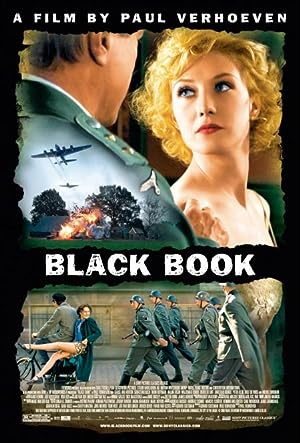I am a bit of a Paul Verhoeven fan so I did not approach Black Book as if it was a fictional movie that would educate me about the historical realities of Europe in WWII, but to the raw emotionally resonant complexities of life as a woman in society. If you take the opposite approach, you may find Black Book offensive. I have no idea how historically accurate it is since I know very little about life in the Netherlands during WWII. His childhood was during that period, and he lived there so Black Book is probably more historically accurate than a Mel Gibson movie, but less than historians would prefer because it is clearly fictional. I have always said that Verhoeven’s proximity to his homeland is proportional to the quality of his films. Black Book is the first film that he made in the Netherlands since 1983. I was surprised at every plot twist and character in Black Book, and it made Melanie Griffith’s Shining Through seem like complete nonsense. The hero of Black Book is Rachel Stein/Ellis de Vries, a Jewish woman played by Carice van Houten, who is now well known as Melisandre in Game of Thrones. Black Book could be called Unbreakable’s overly melodramatic prequel. Verhoeven’s Black Book is a strange mix of old school Hollywood and modern frankness about violence and sexuality as Rachel slowly transforms from a person in hiding to a woman who plays a crucial role in the resistance, but in all her permutations, she is a solid character with a strong identity and confidence. I love how her most effective weapons against the Nazis are very gender specific things turned on their head: chocolate, jewelry, hair dye. Verhoeven explores one of his favorite themes in Black Book: how women must use sexuality to survive and succeed, but are incorrectly vilified by that same society for doing so. He clearly is suspicious of patriotism and hates how nationalism and its bureaucratic systems fail to respect the women who actually do the hard work required to make things work, but heap praise on the vampires of society, usually men. He loves to show how not all good characters get rewarded; not all morally questionable characters should be punished and not all bad characters get punished. The framing of Black Book is interesting-the mother or grade school teacher is probably not as boring and vanilla as you think if you look at her past or possibly wait to see how her future unfolds. There is a suggestion when Black Book ends that Rachel still has a lot of adventures ahead of her, and there is no such thing as peace, especially if you are a woman or Jewish-only brief periods of rest.





